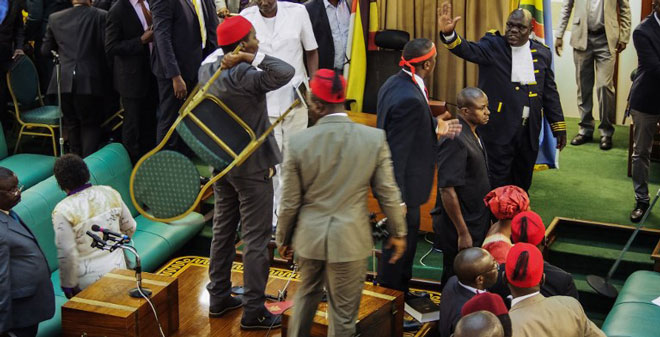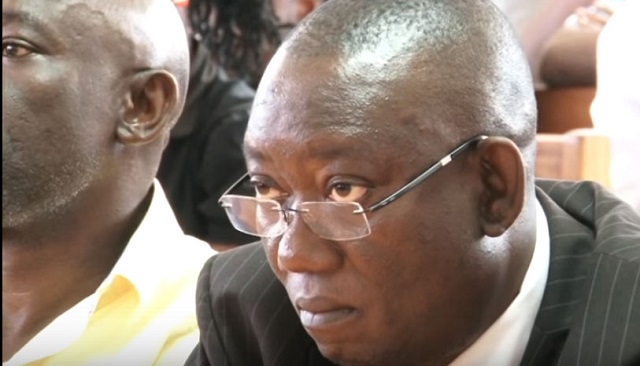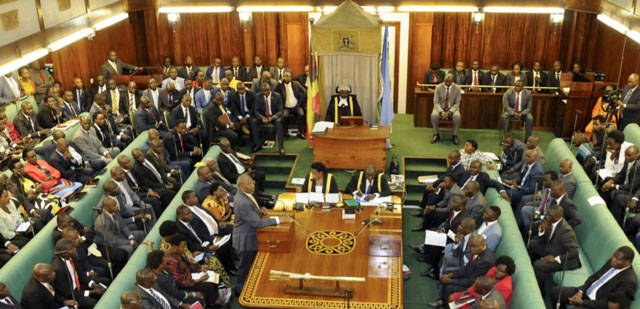
ANALYSIS: Get rich,for doing nothing in Uganda
Kampala, Uganda | RONALD MUSOKE | Parliament usually holds leadership mentor-ship sessions for children and on June 19 it was the turn of prefects from Entebbe Junior School. Deputy Speaker of Parliament, Jacob Oulanyah, was the mentor of the day. He spoke to them in the Parliament Conference Hall.
“A true politician sacrifices with the aim of serving a greater good that is bigger than them,” he told them.
“I left my profession as a lawyer which was handsomely paying to join politics which pays much less and yet I still share the money with people I represent but I do this to serve my people,” he told the school prefects body.
It is not clear how his point, that politics is not about making money but serving the community, went down among the pupils and their teachers. But if they were representative of most pupils and teachers in Uganda, it is possible many did not believe him.
From the look of things, the 2021 parliamentary election promises to be one of the most fiercely contested polls since Uganda opened the space for multi-party elections in 2005.
Looking at the many prominent people who until recently showed little interest but are now rushing to become MPs, political pundits and analysts have been asking why the job has become a “do or die” affair.
As many contestants show willingness to mortgage their property and take hundreds of millions of shillings in bank loans to fund their campaigns, Sabiiti Makara, a senior lecturer of political science at the College of Humanities and Social Sciences in Makerere University, says it is all about pursuit of power and money.
“Who does not want to earn more than they currently do?” Makara asks rhetorically. He says world over, the role of MP comes with several perks.
Makara says in this sense, Uganda is no different from any other place with a parliament.
“The position of MP encompasses power and the desire of every man and woman is to attain the highest power in society,” he told The Independent on Aug. 02.
Among those in the running is Sulaiman Kakaire, a 30-year old part-time lecturer at Makerere University’s Department of Journalism and Mass Communication.
He is aiming for the Bugweri County seat of veteran legislator Abdul Katuntu who has announced he is not running and anointed Kakaire.
Asked why he is in the running, Kakaire who is a former journalist becomes serious before somberly announcing that he is aiming “to make a contribution in the national assembly.”
Still looking serious, he describes the man he aims to succeed as one of the “best MPs in Parliament” and appears overwhelmed that Katuntu deemed him fit for the position.
“I have since consulted friends, family and my mentors at university and they have all told me this is the right time for me to go to Parliament,” he concludes. He does not mention money but he mentions power.
“Politics gives one a bigger platform to play,” he says.
“I have been in journalism for over 10 years and I have written policy-influencing stories and won awards but no one knew me,” he says, “That changed the day I was given a prominent position in (Mugisha Muntu’s) Alliance for National Transformation.”

Chasing money
There are many MPs who join politics to serve.
Julius Acon, the current MP for Otuke County and former 1500m world junior champion (Lisbon, 1994) is not your typical Ugandan MP and he knows it. He told The Independent that he was actually asked by his people in Otuke to go and represent them in Parliament in 2015 because of his “legacy.”
“Before I became MP,” he told The Independent in a recent interview, “I had built for them a Health Centre IV in 2012 worth about Shs2 billion.”
He says he also drilled boreholes worth Shs800 million.
“Over the last four years I have been in Parliament; I have bought and distributed 20,000 hoes to the people, majority of whom are subsistence farmers in the constituency.”
Acon has since retired from professional athletics but he still runs in the master championships or races for retired athletes. In June he was in Australia participating in such races. “Instead of money,” he says, “I asked if they could drill boreholes in my constituency.”
He told The Independent that up to 20 boreholes will be drilled starting this August.
But there is another group of MPs who believe that politics is about “eating”; the street description of being in a position that gives one power and money.
Kato Lubwama belongs to this camp. He told journalist in an interview that he “cannot refuse to eat parliament’s idle money.”
“I would be a fala (fool) to reject money,” he said, “Money has never killed anyone in my clan.”
It is not clear if Lubwama who was a renowned comic artist before joining parliament knows this, but he was echoing a popular quip about parliament attributed to Walter Bagehot, a 19th century British journalist and businessman who became editor-in-chief of The Economist in 1861, after marrying the daughter of its founder and owner in 1858.
Bagehot is quoted to have famously described parliament as “nothing less than a big meeting of more or less idle people.” Readers are often reminded that Bagehot had a master’s degree in moral philosophy to show that he knew what he was talking about. In any case, he was an essayist who wrote extensively about government.
Kato Lubwama spoke in May after the MPs were criticized for allocating themselves an extra Shs102 billion to cater for new higher fuel allowances. Ugandan MPs are already paid handsomely – but they want more and since they require executive approval to increase their salaries, they often shortcut the process by raising their allowances.
Each of the current 460 MPs earns anywhere between Shs15 million to Shs30 million a month, beefed up by allowances and depending on how far their constituency is from the Parliament Building in Kampala.
Broken down, each of the MPs takes home a monthly salary of at least Shs 11 million. This salary is taxable but he or she also takes several untaxed allowances which eventually pushes their paycheck to as much as Shs 30 million.
These allowances include a subsistence allowance of Shs 4.5 million, town running allowance (Shs 1 million), gratuity (Shs 1 million), medical allowance (Shs 500,000), committee and plenary sitting allowance (Shs 50,000 each) as well as a mileage allowance from Parliament to the farthest point of an individual MP’s constituency.
Lubwama said he calls money the MPs are paid “idle money” because he does not ask for it but it somehow ends up on his account because some MPs agitate for it.
Bernard Sabiti, a data analyst at Development Initiatives, an independent international NGO, says such MPs who demand more money are trying to “get a return on their investment.”

Sabiti told The Independent on Aug. 02 that the main motivation of going to Parliament for most MPs is to make money.
“Many will say they are doing this for the good of their country, or they want to improve governance but the fact is that the politics of Uganda and other third world countries is about money.”
“That is why the first thing they do when they reach Parliament is raise their salaries as well as jostling for lucrative committees in Parliament.”
According to him, that is why a lot of people spend a fortune to become MP.
“And if you ask any businessman, they will tell you that business is about getting a return on your investment,” said Sabiti, “It is about joining the clique of eaters; it is an unwritten code among the ruling class.”
 The Independent Uganda: You get the Truth we Pay the Price
The Independent Uganda: You get the Truth we Pay the Price



Parliament is completely useless and continues to fail Ugandans badly. Over-regulating bogus things in an attempt to appear relevant yet they can allow alcohol advertising (TV, billboards, painted shops, name it) while they pretend with government to be concerned about today’s burning issues of poverty (wealth creation), youth unemployment, the ever increasing cases of cancer, crime, domestic violence, road safety… they will even be the ones to cite studies funded by the alcohol industry mbu “research has shown advertising has no impact on alcohol consumption/abuse” …they have repeatedly demonstrated a lack of common sense. The day is coming when parliament will have to be dissolved because of too many years of being a bottomless pit for taxpayers’ money, full of useless so-called honourables dosing shamelessly and making anti-people laws. You just wait and see. It’s coming.